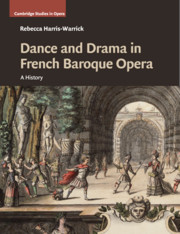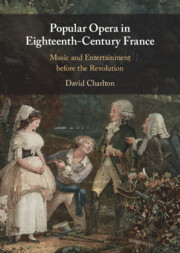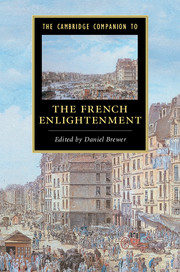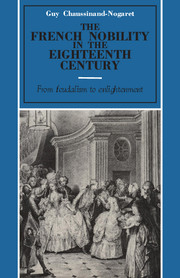Dramatic Expression in Rameau's Tragédie en Musique
Between Tradition and Enlightenment
£90.00
- Author: Cynthia Verba, Harvard University, Massachusetts
- Date Published: February 2013
- availability: Available
- format: Hardback
- isbn: 9781107021563
£
90.00
Hardback
Other available formats:
eBook
Looking for an inspection copy?
This title is not currently available on inspection
-
Cynthia Verba's book explores the story of music's role in the French Enlightenment, focusing on dramatic expression in the musical tragedies of the composer-theorist Jean-Philippe Rameau. She reveals how his music achieves its highly moving effects through an interplay between rational design, especially tonal design, and the portrayal of feeling and how this results in a more nuanced portrayal of the heroine. Offering a new approach to understanding Rameau's role in the Enlightenment, Verba illuminates important aspects of the theory-practice relationship and shows how his music embraced Enlightenment values. At the heart of the study are three scene types that occur in all of Rameau's tragedies: confession of forbidden love, intense conflict and conflict resolution. In tracing changes in Rameau's treatment of these, Verba finds that while he maintained an allegiance to the traditional French operatic model, he constantly adapted it to accommodate his more enlightened views on musical expression.
Read more- Focuses on dramatic expression in the tragic operas of Jean-Philippe Rameau, highlighting how the composer-theorist achieves deeply moving musical settings through an interplay between rational design and the portrayal of feelings
- Provides a new understanding of change and continuity in Rameau's tragedies by showing how he simultaneously embraced a more enlightened view of music's expressive capacity, while still retaining allegiance to the traditional French operatic model
- Reveals Rameau's engagement with the oppositional relationships between hero and heroine and between theory and practice
Reviews & endorsements
'… builds on decades of study of Jean-Phillipe Rameau's musical practice, taking a two-directional approach-theory and musical practice … Recommended. Upper division undergraduates, graduate students, researchers, faculty.' Choice
Customer reviews
Not yet reviewed
Be the first to review
Review was not posted due to profanity
×Product details
- Date Published: February 2013
- format: Hardback
- isbn: 9781107021563
- length: 338 pages
- dimensions: 253 x 178 x 23 mm
- weight: 0.78kg
- contains: 1 b/w illus. 66 music examples
- availability: Available
Table of Contents
1. Introduction
2. Rameau's concept of musical expression: in theory and practice
3. Getting oriented: Rameau's First Tragédie, Hippolyte et Aricie (premiere, 1733)
4. Comparative overview of Rameau's tragedies, first versions: continuity and change
5. Scenes of forbidden love confessed
6. Scenes of intense conflict
7. Scenes of conflict resolution
Conclusion.
Sorry, this resource is locked
Please register or sign in to request access. If you are having problems accessing these resources please email [email protected]
Register Sign in» Proceed
You are now leaving the Cambridge University Press website. Your eBook purchase and download will be completed by our partner www.ebooks.com. Please see the permission section of the www.ebooks.com catalogue page for details of the print & copy limits on our eBooks.
Continue ×Are you sure you want to delete your account?
This cannot be undone.
Thank you for your feedback which will help us improve our service.
If you requested a response, we will make sure to get back to you shortly.
×






